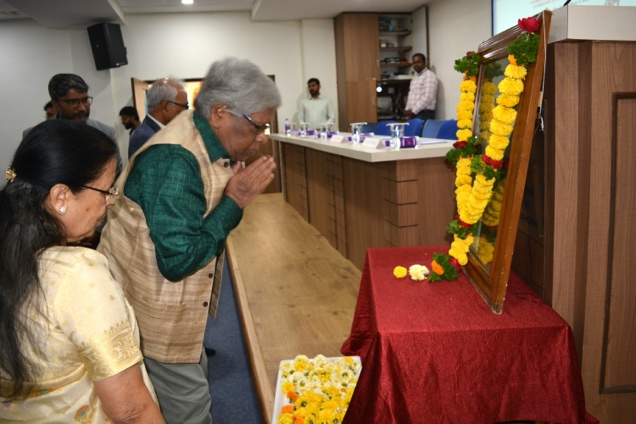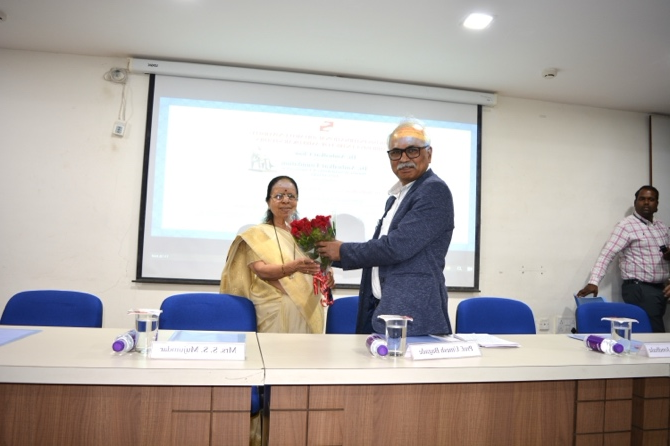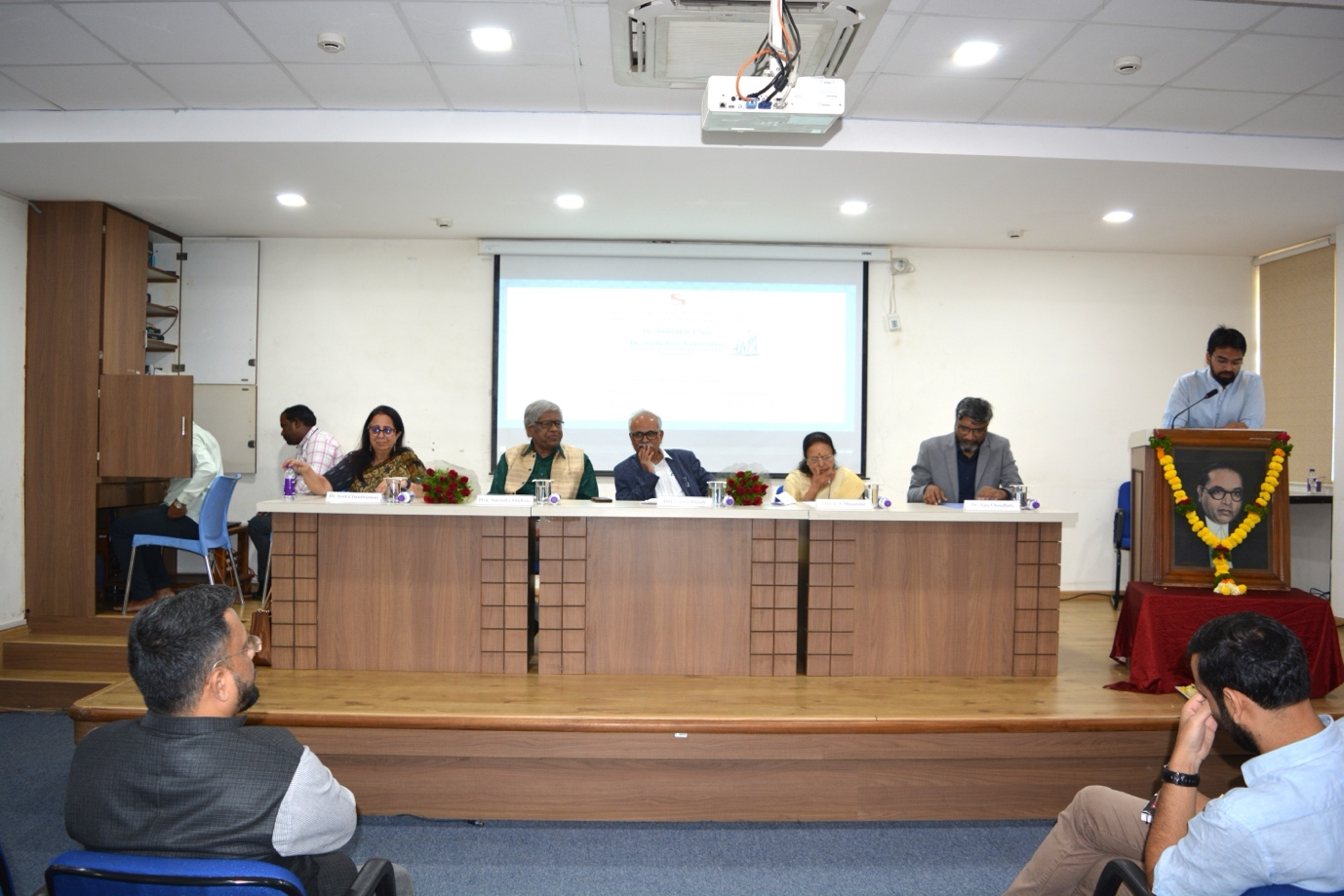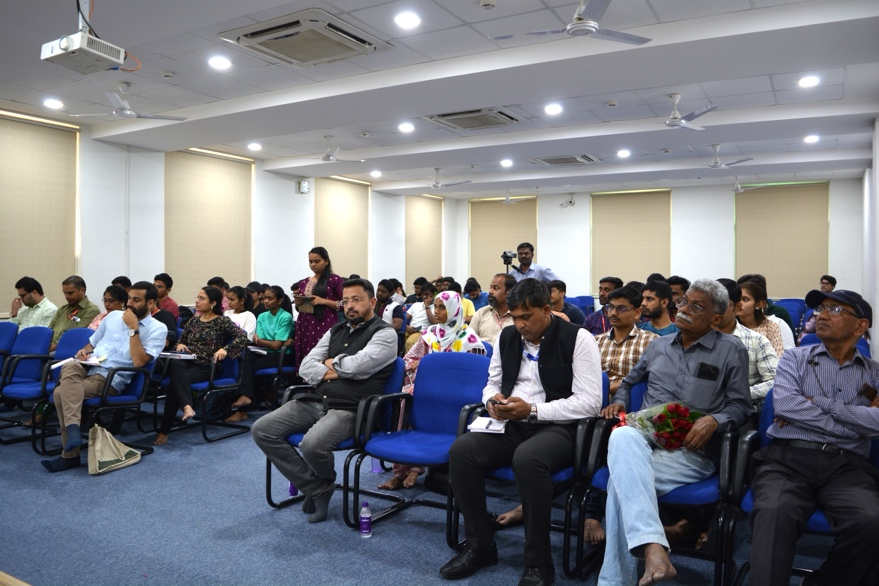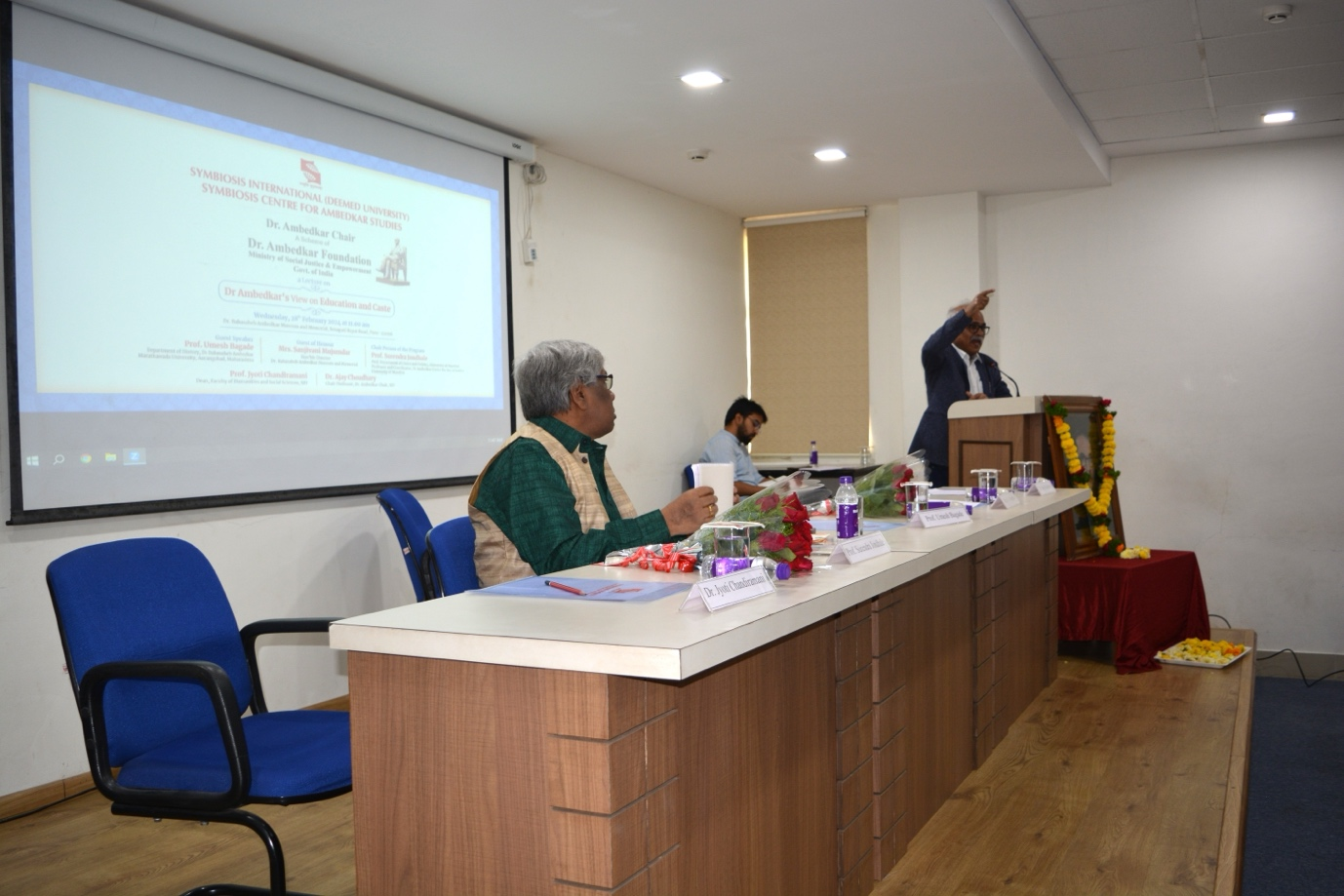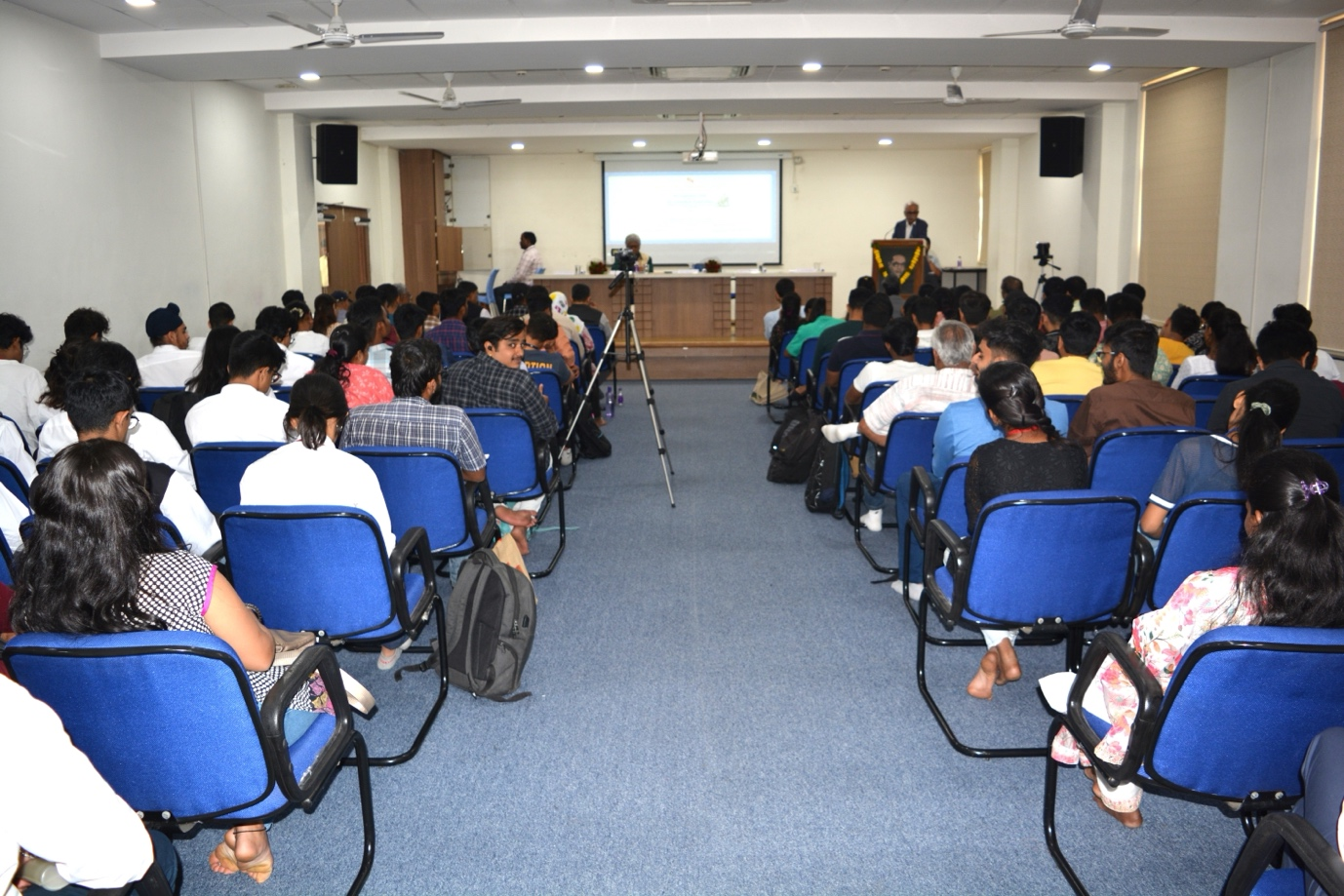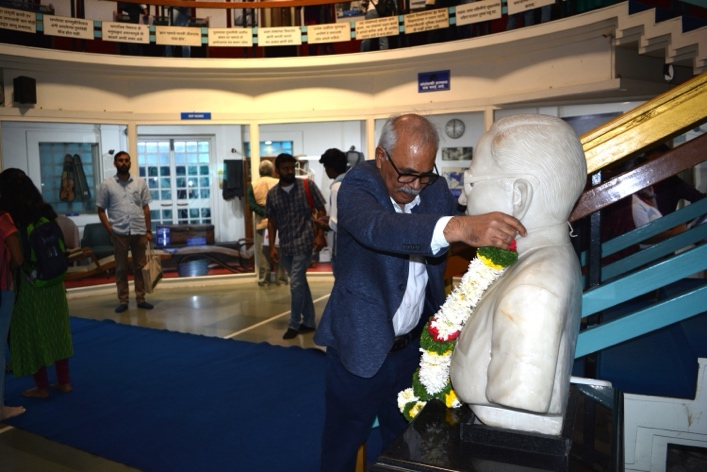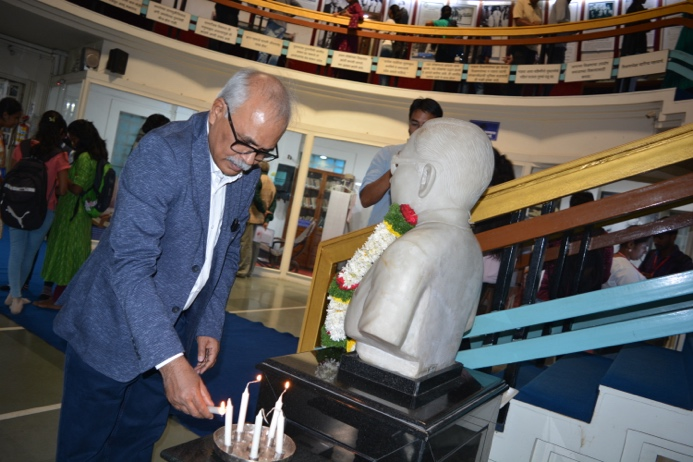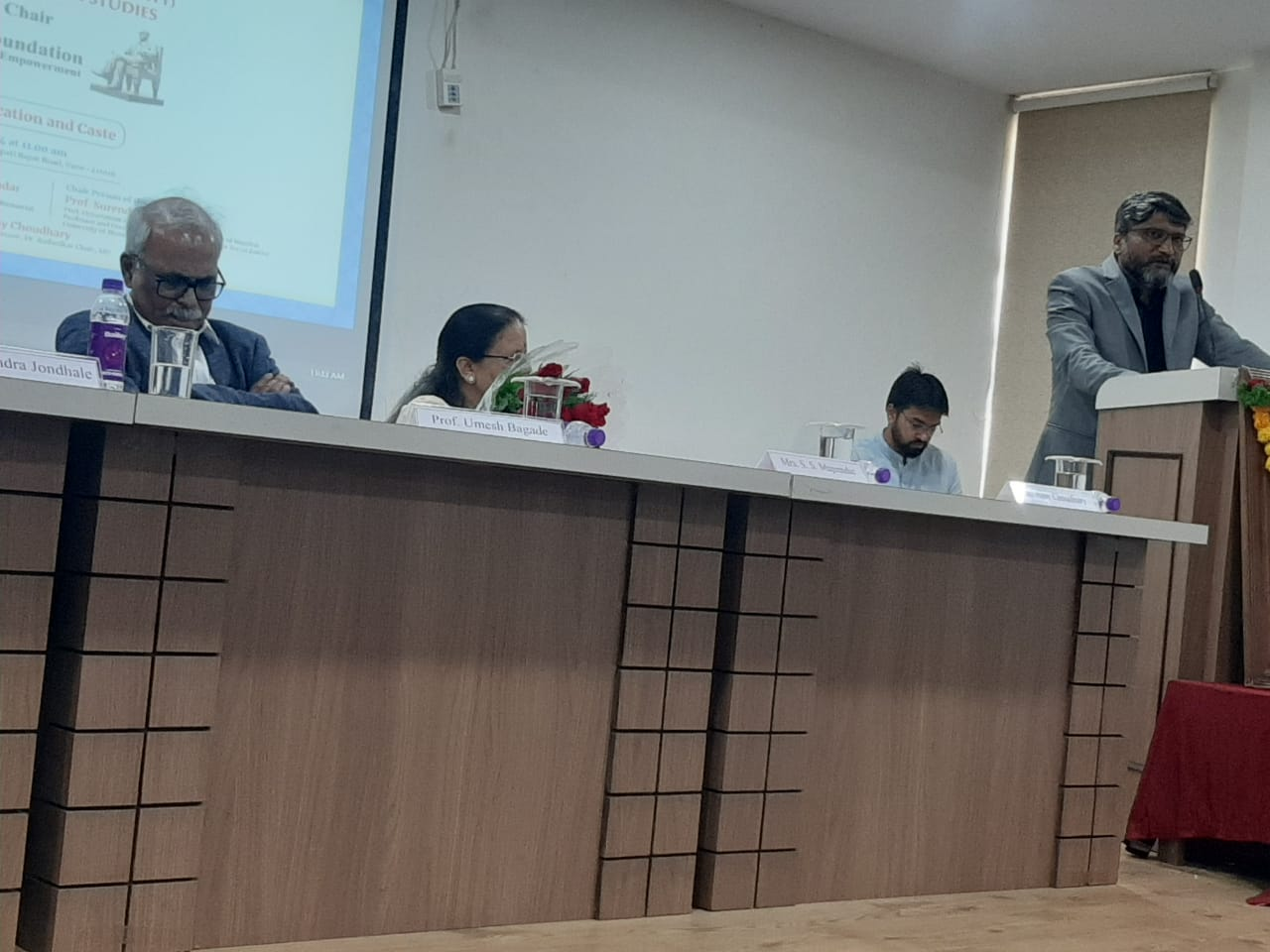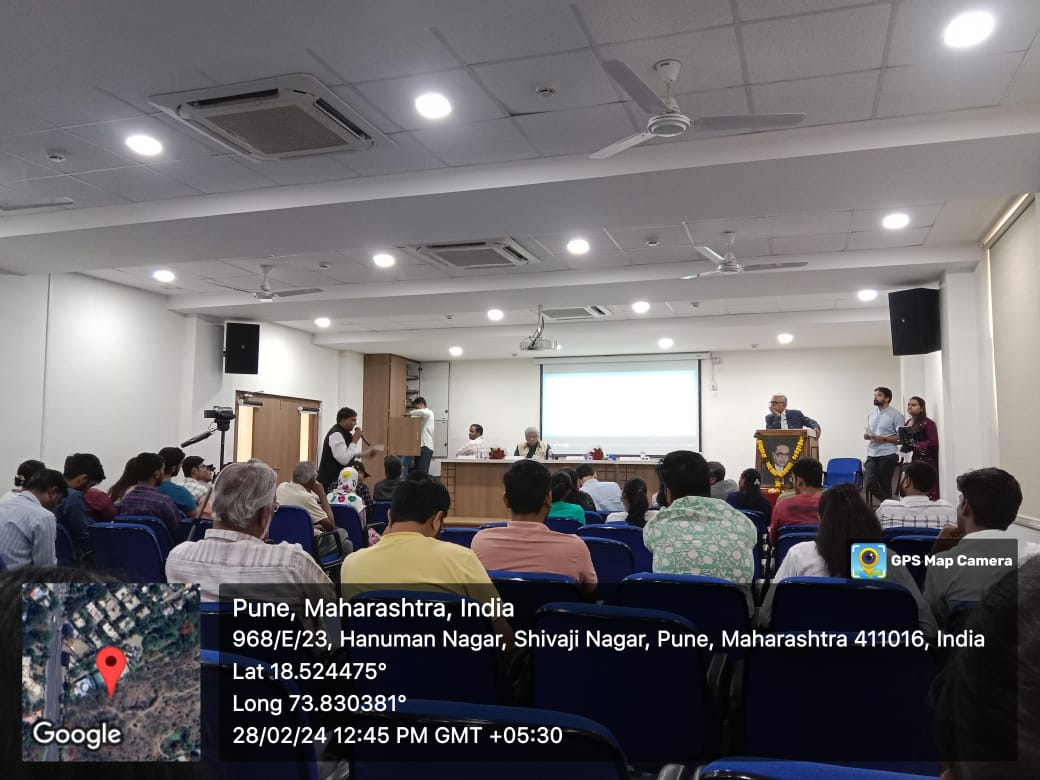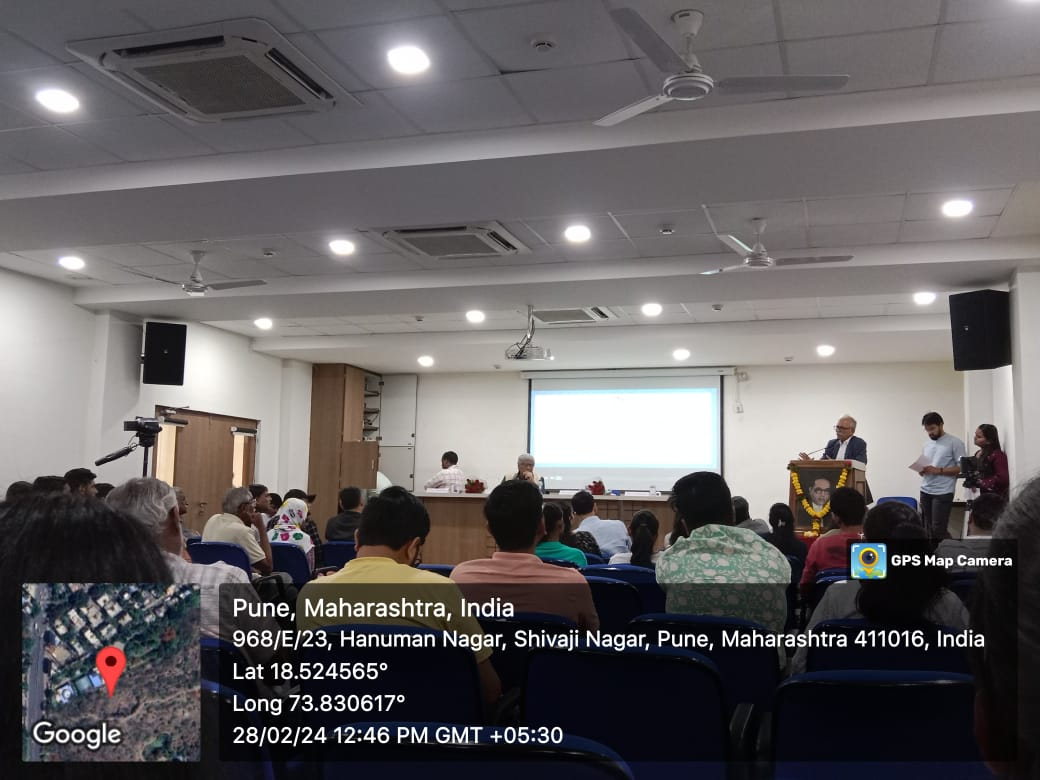In a compelling and intellectually stimulating lecture, Prof
Umesh Bagade shed light on the visionary perspectives of Dr B.R.
Ambedkar concerning education and caste. The talk was hosted by
Dr Ambedkar Chair, Dr Babasaheb Ambedkar Museum and Memorial,
Symbiosis International Deemed University, Pune on 28th February
2024.
This meeting was happening in a hybrid mode, where participants
were attending the session through the online (91 Participants)
and physical modes (100 Participants).
The programme was attended by students and academicians from
SPPU, Fergusson College, ILS Law College, and SNDT, apart from
the students of Symbiosis International University.
The programme started with garlanding Dr Ambedkar’s portrait and
guests paying their tributes, after which Mrs. Sanjeevani
Majumdar emphasised the idea of how Dr Ambedkar used education
as a tool for social transformation through the establishment of
the People’s Education Society and the power of education to
bring social progress.
Prof. Jyoti Chandiramani
shared her views on the importance of equity and education in
contemporary times and discussed inclusive education. Dr Ajay
Choudhary talked about education and its relationship to other
institutions, such as Caste, that influence the different
spheres of Indian society. He furthers how educational
institutions act in accordance with social norms, extending
social inequalities.
Prof Bagade’s profound insights of Dr B.R. Ambedkar regarding
education and caste attracted a diverse audience eager to
understand these critical issues more deeply. He commenced the
lecture by contextualising Dr Ambedkar’s life and legacy,
emphasising his tireless advocacy for social justice and
equality.
He built a connection with Immanuel Kant’s philosophy and found
its evidence in the writings of Dr Ambedkar. He showcased how
radical structuralists like Mahatma Phule and Dr Ambedkar were
the product of the Indian Enlightenment Movement and curled out
the ideas of education as proposed by Dr Ambedkar from his
review of Bertrand Russel’s Book.
He emphasised the idea of Dr Ambedkar, according to which reason
alone cannot do away with the caste and how caste has a
structure of forced labour. Prof Bagade then talked about
Chokamela and Buddha, according to whom no knowledge is final
and Knowledge is an ever-evolving process.
He connects to the concept of Buddha’s eradication of Avidya,
which became the mission of eradication by Mahatma Phule and Dr
Ambedkar.
Prof Bagade elucidated Dr. Ambedkar’s nuanced understanding of
caste and its implications for Indian society. Dr Ambedkar’s
critique of the caste system as a profoundly entrenched
structure of oppression resonated strongly with the audience,
prompting reflection on the enduring challenges faced by
marginalised groups.
Subsequently, after his address, the lecture engendered a
vibrant exchange of ideas, with attendees actively participating
in Q&A sessions and sharing personal reflections on the
relevance of Dr Ambedkar’s teachings in their lives. To end the
programme, the Chair of the session, Prof Surendra Jondhale,
addressed the audience by sharing his concerns on the
persistence of Caste today and the condition of education in
contemporary times.
Prof Jondhale showed why Dr Ambedkar’s ideas are still relevant
today. He highlighted the importance of Indian thinkers like
Mahatma Phule and Dr Ambedkar and their critical writings when
philosophers like Foucault, Derrida, etc, were being discussed.
He raised critical, self-reflexive, and thought-provoking
questions, such as whether untouchability is an exploitative
practice, whether the spaces of modernity will abolish the caste
system and other questions.
Subsequently, the Vote of thanks was presented, and they
extended their sincere gratitude to Prof Umesh Bagade for his
enlightening lecture, to all attendees for their active
participation and contribution to the dialogue on this crucial
topic and to the audience for their keen participation.
Subsequently, the guests and the audience engaged in the poster
exhibition by the students and visited the Dr B. R. Ambedkar
Museum. The lecture underscored the enduring relevance of Dr
Ambedkar’s vision in guiding efforts to create a more just and
inclusive society. Through his thought-provoking analysis and
engaging discourse, Prof Bagade left a lasting impact on all who
attended, reaffirming Dr Ambedkar’s status as a beacon of hope
and inspiration for future generations.



